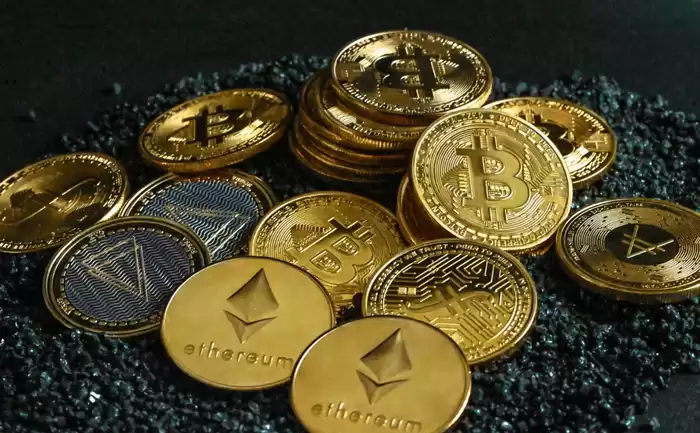-
 bitcoin
bitcoin $87959.907984 USD
1.34% -
 ethereum
ethereum $2920.497338 USD
3.04% -
 tether
tether $0.999775 USD
0.00% -
 xrp
xrp $2.237324 USD
8.12% -
 bnb
bnb $860.243768 USD
0.90% -
 solana
solana $138.089498 USD
5.43% -
 usd-coin
usd-coin $0.999807 USD
0.01% -
 tron
tron $0.272801 USD
-1.53% -
 dogecoin
dogecoin $0.150904 USD
2.96% -
 cardano
cardano $0.421635 USD
1.97% -
 hyperliquid
hyperliquid $32.152445 USD
2.23% -
 bitcoin-cash
bitcoin-cash $533.301069 USD
-1.94% -
 chainlink
chainlink $12.953417 USD
2.68% -
 unus-sed-leo
unus-sed-leo $9.535951 USD
0.73% -
 zcash
zcash $521.483386 USD
-2.87%
A complete guide to basic knowledge in the cryptocurrency circle (must read for beginners)
Sentence: Cryptocurrencies, such as Bitcoin, Ethereum, and Solana, provide secure and decentralized financial transactions through cryptography.
Oct 21, 2024 at 03:59 pm

- A digital or virtual currency that uses cryptography for secure transactions and decentralized control.
- Bitcoin (BTC): Decentralized and limited in supply.
- Ethereum (ETH): Platform for decentralized applications and smart contracts.
- Solana (SOL): Fast and scalable blockchain network.
- Cardano (ADA): Proof-of-stake blockchain offering low transaction fees.
- Binance Coin (BNB): Native token of the Binance exchange.
- Decentralized marketplace where cryptocurrencies are bought and sold.
- Highly volatile, with prices fluctuating significantly.
- Platform where users buy, sell, and trade cryptocurrencies.
- Top exchanges include OKX, Binance, Coinbase, and Kraken.
- Software or hardware device that stores private keys and allows users to manage cryptocurrencies.
- Hot wallets (connected to the internet) vs. cold wallets (offline storage).
- Process of validating and adding cryptocurrency transactions to the blockchain.
- Involves solving complex mathematical problems using specialized computers.
- Consensus mechanisms used to secure blockchain networks.
- Proof-of-Work: Miners solve puzzles to validate transactions.
- Proof-of-Stake: Holders stake their cryptocurrency to validate transactions, consuming less energy.
- Key aspect of cryptocurrencies, meaning they are not controlled by a central authority.
- Costs associated with sending and receiving cryptocurrencies.
- Fees vary depending on the network and transaction volume.
- High-risk investment with potential for significant gains and losses.
- Diversify portfolio and invest only what you can afford to lose.
- Store cryptocurrencies securely in reputable wallets and use strong passwords.
- Be aware of phishing scams and suspicious emails.
- Cryptocurrencies are subject to varying regulations by different countries.
- Check local regulations before investing or using cryptocurrencies.
Disclaimer:info@kdj.com
The information provided is not trading advice. kdj.com does not assume any responsibility for any investments made based on the information provided in this article. Cryptocurrencies are highly volatile and it is highly recommended that you invest with caution after thorough research!
If you believe that the content used on this website infringes your copyright, please contact us immediately (info@kdj.com) and we will delete it promptly.
- Coin Expert Debunks £5 Million Rare Penny Myth, Urges Vigilance Among Collectors
- 2026-02-09 19:45:01
- Big Apple's Pulse: Crypto Market Braces for CPI, Fed Speakers, and a Wild Week Ahead
- 2026-02-09 19:40:02
- Coinbase Pauses Support for Clarity Act, Lawmakers Grapple with Cryptocurrency Regulation
- 2026-02-09 19:40:02
- Klardven, Big-Tech, and the Whispers of Investment Rumors: A DeFi Infrastructure Story
- 2026-02-09 18:45:02
- XAIZOT Token Ignites AI-Driven Crypto Presale: A Smarter Dawn for Digital Assets
- 2026-02-09 19:35:01
- 9BIT Price Surges on KuCoin Debut: Unpacking the Future Outlook of This Gaming Crypto's Ascent
- 2026-02-09 19:30:01
Related knowledge

What is the future of cryptocurrency and blockchain technology?
Jan 11,2026 at 09:19pm
Decentralized Finance Evolution1. DeFi protocols have expanded beyond simple lending and borrowing to include structured products, insurance mechanism...

Who is Satoshi Nakamoto? (The Creator of Bitcoin)
Jan 12,2026 at 07:00am
Origins of the Pseudonym1. Satoshi Nakamoto is the name used by the individual or group who developed Bitcoin, authored its original white paper, and ...

What is a crypto airdrop and how to get one?
Jan 22,2026 at 02:39pm
Understanding Crypto Airdrops1. A crypto airdrop is a distribution of free tokens or coins to multiple wallet addresses, typically initiated by blockc...

What is impermanent loss in DeFi and how to avoid it?
Jan 13,2026 at 11:59am
Understanding Impermanent Loss1. Impermanent loss occurs when the value of tokens deposited into an automated market maker (AMM) liquidity pool diverg...

How to bridge crypto assets between different blockchains?
Jan 14,2026 at 06:19pm
Cross-Chain Bridge Mechanisms1. Atomic swaps enable direct peer-to-peer exchange of assets across two blockchains without intermediaries, relying on h...

What is a whitepaper and how to read one?
Jan 12,2026 at 07:19am
Understanding the Whitepaper Structure1. A whitepaper in the cryptocurrency space functions as a foundational technical and conceptual document outlin...

What is the future of cryptocurrency and blockchain technology?
Jan 11,2026 at 09:19pm
Decentralized Finance Evolution1. DeFi protocols have expanded beyond simple lending and borrowing to include structured products, insurance mechanism...

Who is Satoshi Nakamoto? (The Creator of Bitcoin)
Jan 12,2026 at 07:00am
Origins of the Pseudonym1. Satoshi Nakamoto is the name used by the individual or group who developed Bitcoin, authored its original white paper, and ...

What is a crypto airdrop and how to get one?
Jan 22,2026 at 02:39pm
Understanding Crypto Airdrops1. A crypto airdrop is a distribution of free tokens or coins to multiple wallet addresses, typically initiated by blockc...

What is impermanent loss in DeFi and how to avoid it?
Jan 13,2026 at 11:59am
Understanding Impermanent Loss1. Impermanent loss occurs when the value of tokens deposited into an automated market maker (AMM) liquidity pool diverg...

How to bridge crypto assets between different blockchains?
Jan 14,2026 at 06:19pm
Cross-Chain Bridge Mechanisms1. Atomic swaps enable direct peer-to-peer exchange of assets across two blockchains without intermediaries, relying on h...

What is a whitepaper and how to read one?
Jan 12,2026 at 07:19am
Understanding the Whitepaper Structure1. A whitepaper in the cryptocurrency space functions as a foundational technical and conceptual document outlin...
See all articles










































































